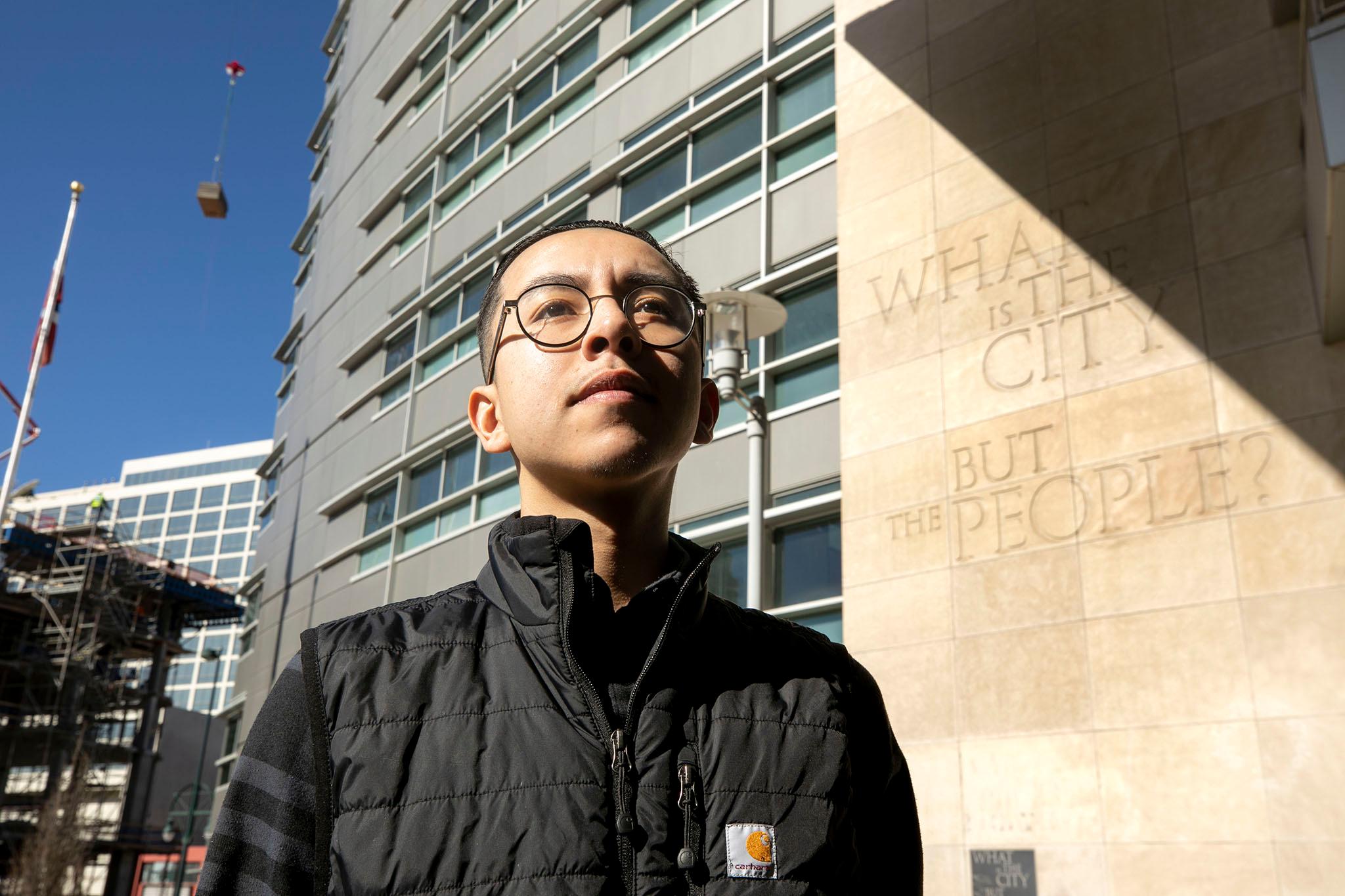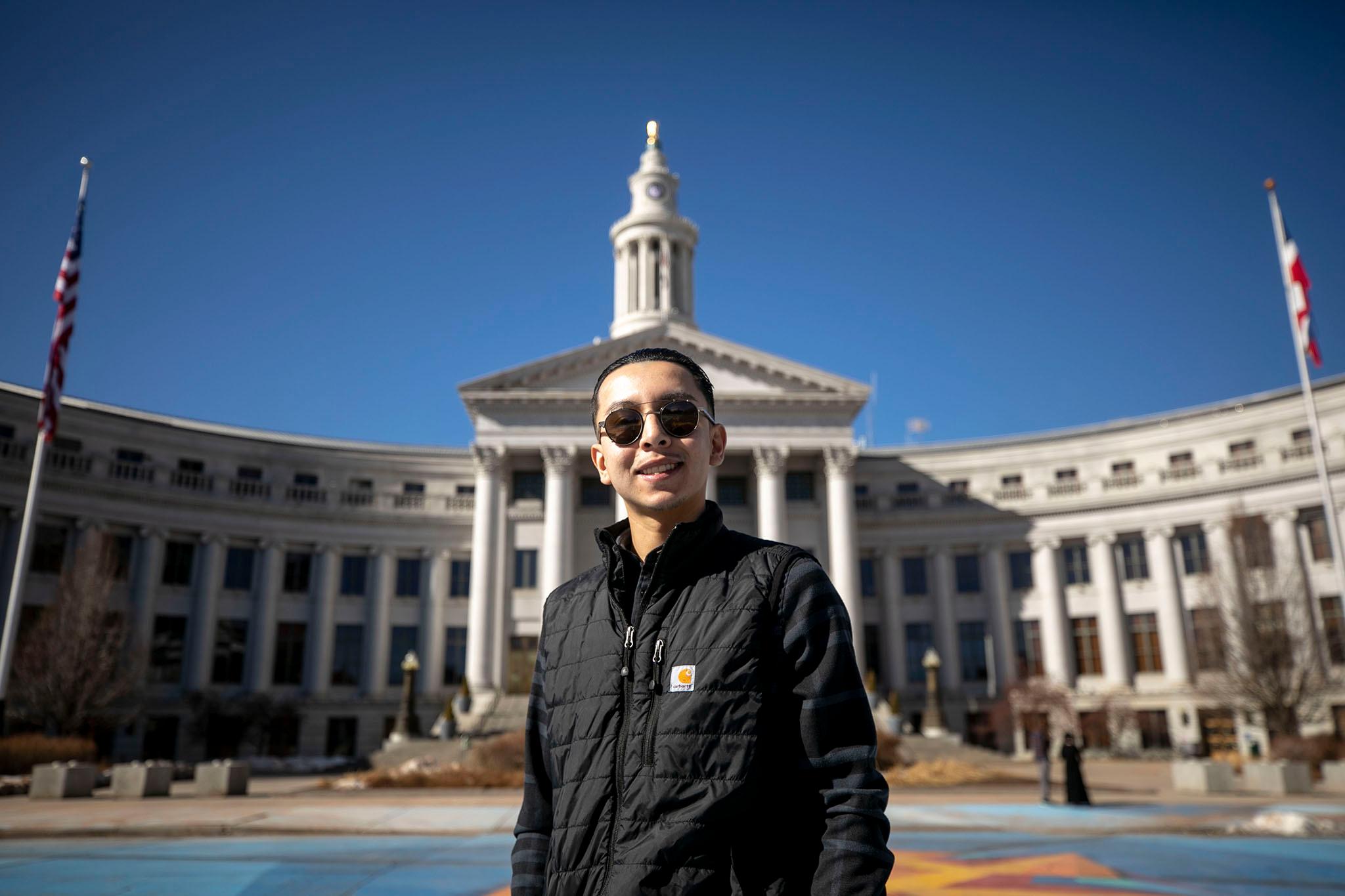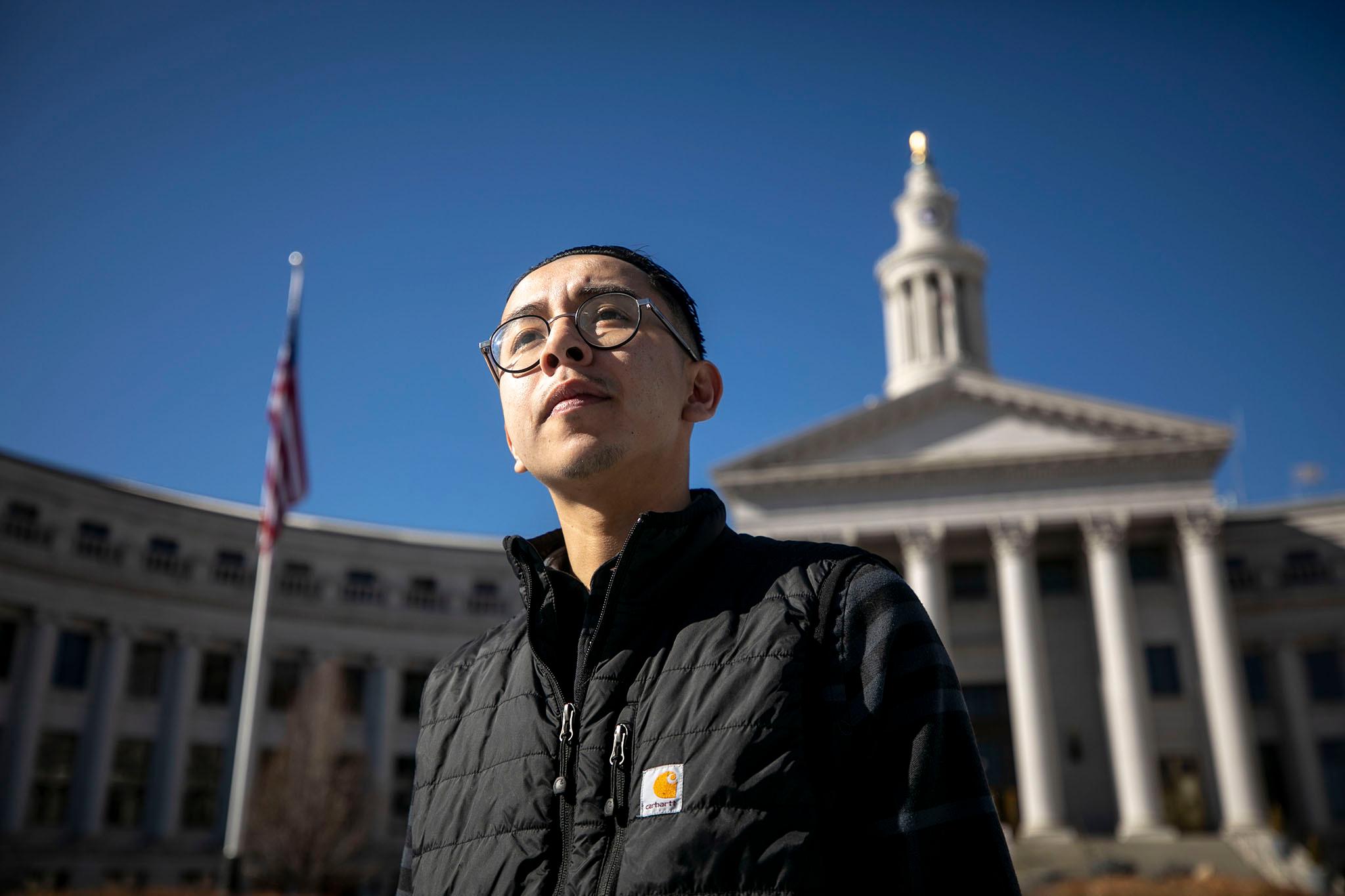Dominic A. Diaz, 25, may be the youngest candidate running for one of the two open at-large City Council positions but with a decade of experience working with various city agencies, he said he's up to the task of representing all Denverites.
"Being the youngest person in the room doesn't bother me," Diaz said. "Denver deserves a councilmember that knows what they're doing and can hit the ground running one day and that's me. Having worked with city government for over 10 years, I know how to get things done .... Council should be reflective of the diversity that it serves. I think it's time we have a renter on city council and I think it's time we have a young person on city council."
Diaz was born and raised in Denver, having lived in the Montbello, Green Valley Ranch and currently Sun Valley neighborhoods.
One of Diaz's first jobs was working at the Montbello Recreation Center when he was 15 years old. From there, he worked as an election official with the Denver Clerk and Recorder's Office and later transitioned to his current role as a contract compliance coordinator for the Office of Children's Affairs.
Diaz said after spending time in the Clerk and Recorder's Office, he knew he wanted to run for council, but an article regarding Denver's inverted L sparked "a call for action" for Diaz. The boundaries of the inverted L loosely align with Interstate 70 and Interstate 25 and form an imaginary -- but very real -- dividing line of race, income-levels, education, likelihood of displacement and tree shade.

Diaz said in his time living outside the L, nothing has changed to remove the dividing line.
"I didn't think enough was being done to undo some of the effects of the inverted L, specifically food deserts and child care deserts. Just the overall inequity in our city," Diaz said. "I think Denver can do better. We have a responsibility to our people to step up and make sure all the neighborhoods have what they need to thrive."
One thing Diaz said all neighborhoods need is better transportation options and safer traffic infrastructure.
Diaz said in Montbello, for example, the lack of transportation fuels the neighborhood's lack of accessible food options. The neighborhood is a food desert to begin with and not having a way to get to a grocery store further covers the area in disparities.
Diaz said he'd like to see "The Connector," Denver's microtransit service, expand into more areas. Currently, it operates in Montbello, Globeville and Elyria-Swansea. He said he'd like to explore more city-run transit options that would "supplement and complement" the RTD network. Diaz said one of those options could be more bus rapid transit lines. For further equity, he said those options should come with reduced or free fares for those in need and the elderly.
Besides transportation, Diaz said his top two concerns are housing and safety.
For housing, Diaz wants to increase the housing stock with more units, specifically affordable units, and preserve housing that's already affordable. One way to increase the stock is to better incentivize developers, Diaz said, by reducing permitting costs and wait times.
"Speaking with developers, the number one thing I hear is how they're hemorrhaging money when it comes to the lengthy and costly permitting process," Diaz said. "I think that when it's appropriate we need to consider fee waivers or reductions for developers. But I'm also cognizant of the effects of gentrification and displacement. Denver is not for sale -- in my book -- to the highest bidder. We need to make sure that development of the city works for us, not happens to us."
To address permitting times, Diaz said council should work with the city's Community Planning and Development department to come up with ways to help it recruit and retain employees. The labor problem, Diaz said, is affecting all city departments.
"We have to invest in our city employees," Diaz said.
Another way to increase the housing stock, Diaz said, is by creating development with multi-uses and taking vacant city property and turning that into permanent housing or transitional housing for those experiencing homelessness. He points to the city's efforts of purchasing motels. Diaz said The Rose on Colfax is a great example of development being used for both housing and as a service, in this case child care.
In order to preserve affordability, Diaz said there should be more tax credits available to help residents save on energy costs as well as property tax relief for those in need and the elderly.

Diaz said youth violence prevention is key to his public safety plans. That starts with investment in youth programming focused on mental health and apprenticeship programs, Diaz said. He also thinks more exposure to positive environments and cultural institutions will help.
"If kids are given the opportunity, I think we would prefer to pick up books rather than guns," Diaz said. "I'm tired of losing my peers, people that I grew up with to use violence .... We need to expand their horizons just to show that there are things that exist outside of the city."
The at-large race is stacked with nine candidates, including Diaz. Both at-large seats are open, as councilmembers Robin Kniech and Debbie Ortega (who is running for mayor) are term-limited. The candidates with the top two vote totals get the two seats.
As the April 4 election looms closer, Diaz said he'll continue to talk about the issues of the inverted L and hopes, if elected, that he can undo the inequities Denver's marginalized communities have faced, while also being an advocate for youth and all Denverites.
"I'm going to keep saying this but Denver can do better," Diaz said. "The inverted L, redlining and Denver's history of racist policies ... it's time we acknowledge it and work to undo it. I'm not naïve. I don't think I'm going to do that by myself or in one term. It's going to take intentionality and it's going to take time .... We need to show up and stand shoulder and shoulder with community members and just be in solidarity. I'm trying to represent people to the city, not the city to the people."












